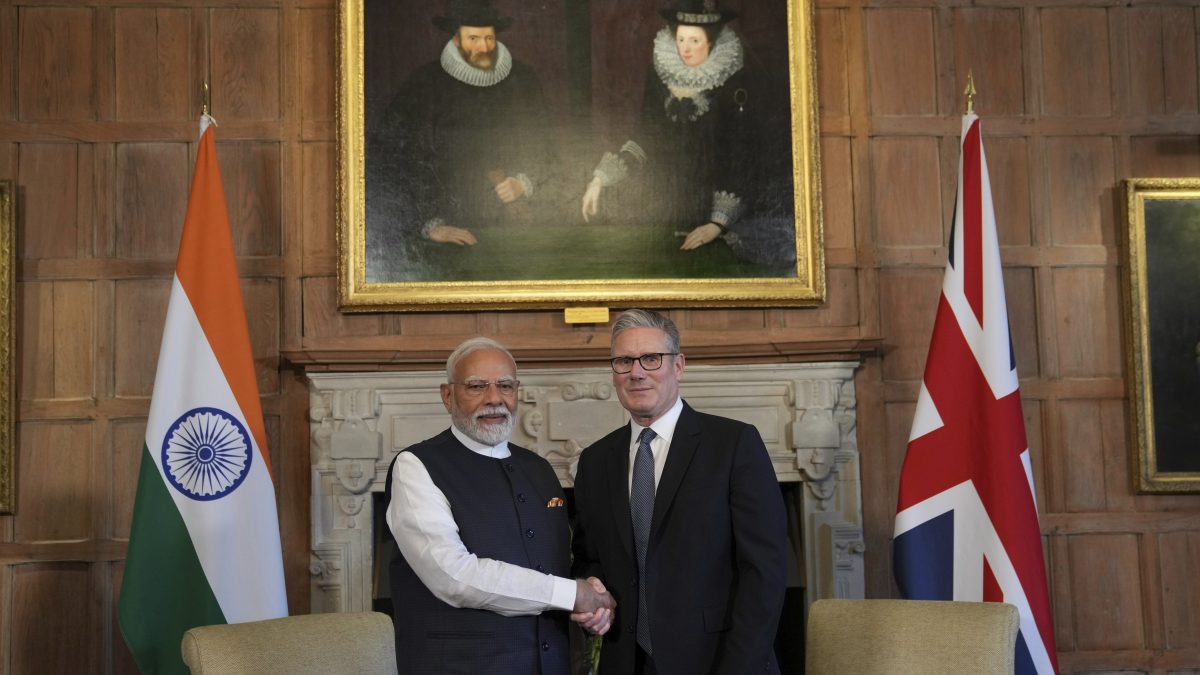The India-UK Free Trade Agreement (FTA), signed on July 24, 2025, by Indian Prime Minister Narendra Modi and UK Prime Minister Keir Starmer in London, is being hailed as a landmark achievement with significant economic implications for both nations. This FTA, India's first major one in over a decade and the UK's fourth since leaving the European Union in 2020, aims to boost bilateral trade and investment through tariff reductions and enhanced market access.
Key Highlights and Statements:
- Historic Significance: Both Prime Ministers have emphasized the historic nature of the agreement. PM Modi stated it marks a "historic day in India-UK relations," highlighting the years of hard work culminating in a comprehensive economic and trade agreement. Starmer called it the "biggest and economically most significant trade deal the UK has made since leaving EU," signaling Britain's openness to business.
- Economic Boost: The FTA is projected to increase annual bilateral trade by £25.5 billion (USD 34 billion). Both countries aim to double trade to USD 120 billion by 2030, with potential to reach an additional USD 40 billion by 2040. The UK government estimates the FTA could add £4.8 billion to the country's GDP each year and deliver a total annual wage boost of £2.2 billion.
- Tariff Reductions: The agreement ensures that 99% of exports from India will have duty-free entry into British markets. India will also significantly lower its import duties, affecting 90% of tariff lines, with about 85% of these products becoming entirely free from tariffs over a ten-year period. The UK government notes that India's average tariff on British goods will reduce from 15 percent to 3 percent.
- Benefits for India: The FTA is expected to create new opportunities for India's agricultural produce and processed food industry in the British market, benefiting youth, farmers, fishermen, and the MSME sector. Key Indian exports such as textiles, leather goods, footwear, seafood, gems and jewellery, and engineering goods will gain greater market access in the UK under reduced tariffs. Indian farmers are set to benefit significantly, with duty-free access to the UK's premium markets and agricultural exports projected to increase by over 20% in three years.
- Benefits for the UK: The agreement will make it easier for British firms to export whisky, cars, and other products to India. Indian consumers will benefit from improved access to British products such as automobiles, healthcare equipment, soft drinks, and cosmetics, as average duty rates decrease. The FTA is expected to attract nearly £6 billion in new investment and export opportunities to the UK and generate over 2,200 jobs across the country.
- Job Creation: The Free Trade Agreement will substantially boost job opportunities across India and the UK. It opens up fresh export avenues in labor-intensive industries for India. The UK anticipates creating thousands of jobs, particularly in engineering, technology, and advanced manufacturing.
- Strategic Partnership: Beyond trade, the FTA aims to promote professional mobility, strengthen regulatory cooperation, and boost cross-border investment. The two Prime Ministers will also unveil an “U.K.-India Vision 2035” to take their partnership to new heights in a time of rapid global change.
- Specific Sector Benefits:
- Textiles and Apparel: The FTA is expected to usher in a new era of garment trade with the UK, enhancing market access, spurring investment and job creation in the garment sector.
- Agriculture: Indian staples like turmeric, pepper, and cardamom will enter the UK market without import tax, boosting profits for Indian farmers and exporters.
- Automobiles: Tariffs on automobiles will see a significant reduction, although some restrictions may apply.
- Whisky: British whisky producers will benefit from tariffs being slashed, giving them a strong competitive advantage in the Indian market.
- Trade Surplus: As of FY 2024–25, India recorded a trade surplus of US$5.94 billion with the UK, and the FTA is expected to further boost trade volumes. In 2024-25, India's merchandise exports to the UK rose 12.6% to $14.5 billion, while imports grew marginally by 2.3% to $8.6 billion.
- Double Contribution Convention: India and the UK have also sealed a double contribution convention, allowing Indian professionals working in Britain on short-term assignments to avoid paying into both countries' social security systems.
Overall, the India-UK FTA is viewed as a transformative agreement that will strengthen economic ties, create new opportunities, and drive growth in both countries. The agreement is expected to undergo ratification by the UK Parliament.

